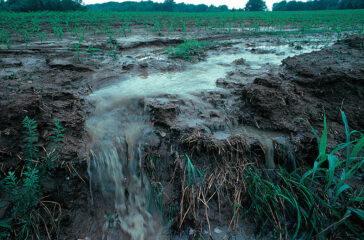EPA called to address “long-ignored health crisis” in Iowa drinking water
By Carey Gillam
US regulators must take immediate action to address a “long-ignored health crisis” stemming from dangerously contaminated drinking water in Iowa, according to a legal petition filed by environmental and health advocacy groups this week.
 EWG
EWG